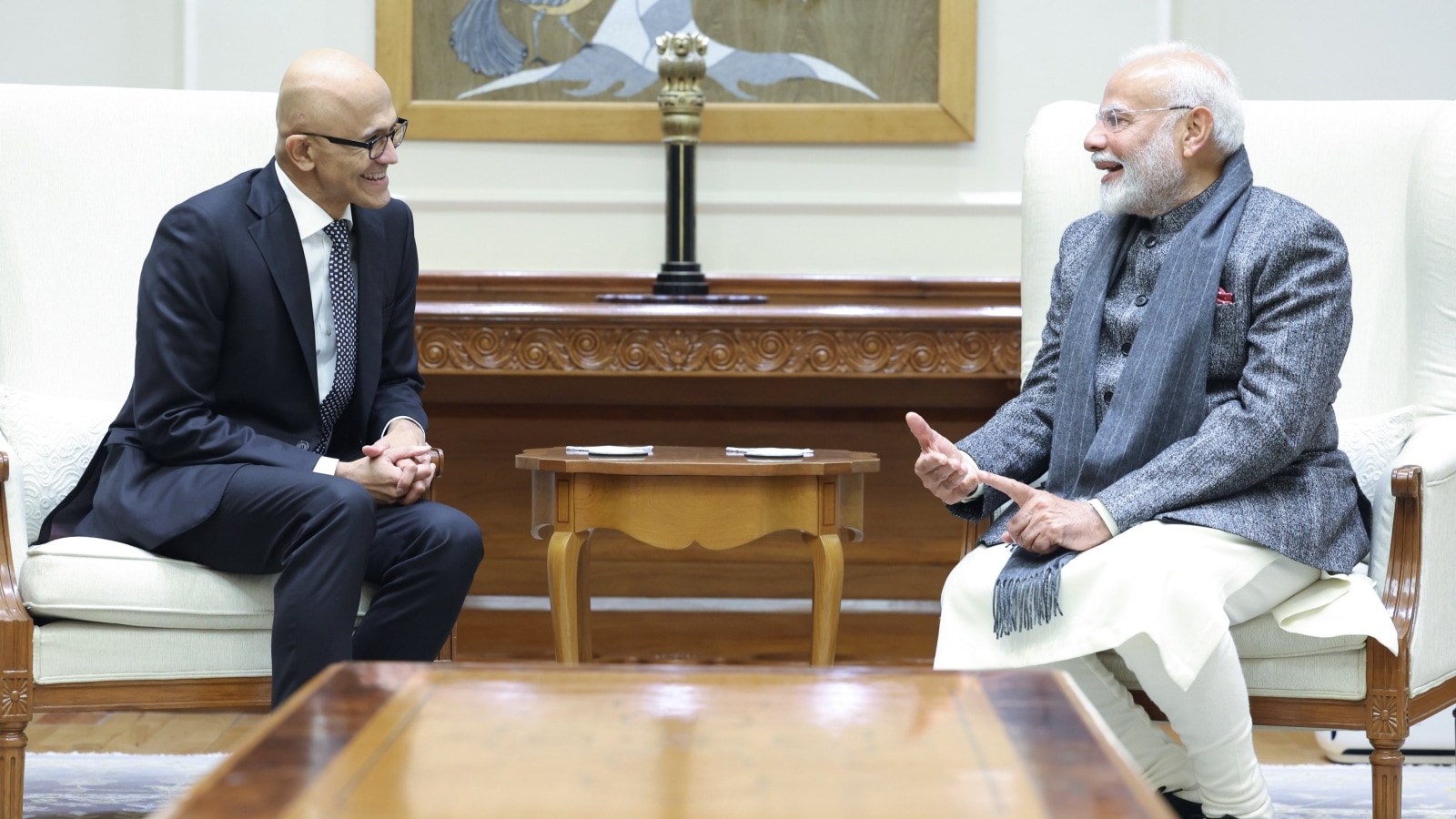 |
|
The meeting between Microsoft CEO Satya Nadella and Indian Prime Minister Narendra Modi signifies a crucial juncture in India's technological advancement and its ambition to become a leader in artificial intelligence. Nadella's commitment to making India 'AI-first' reflects a significant strategic move by Microsoft, aligning its interests with India's national development goals. This collaborative approach underscores the potential for substantial economic growth and technological innovation within India. The partnership between a global tech giant and a rapidly developing nation presents both opportunities and challenges. The success of this initiative hinges on several key factors, including the availability of skilled workforce, robust infrastructure, ethical considerations surrounding AI development, and the effective implementation of policies that foster innovation while addressing potential societal disruptions.
India's burgeoning tech sector presents a lucrative market for Microsoft. The country's vast population and increasing digital literacy create a significant consumer base for AI-driven products and services. This presents Microsoft with the opportunity to expand its market share and solidify its position as a dominant player in the global AI landscape. However, this expansion must be carefully managed to avoid exacerbating existing socioeconomic inequalities. The benefits of AI must be equitably distributed to ensure that all segments of Indian society, including rural and marginalized communities, have access to the opportunities created by this technological revolution. Therefore, a crucial aspect of this collaboration is the development of inclusive AI solutions that address the unique needs and challenges of the diverse Indian population.
Beyond economic considerations, the strategic partnership between Microsoft and India holds geopolitical implications. India's emergence as a major player in the global tech arena could reshape the international landscape, altering the balance of power in the technological sphere. This collaboration could also influence the development and adoption of AI standards and regulations, potentially setting precedents for other nations. The ethical implications of AI development and deployment are paramount. Both Microsoft and the Indian government must ensure that AI is used responsibly, avoiding bias and promoting fairness and transparency. The potential for misuse of AI, such as for surveillance or discriminatory practices, necessitates the development of robust ethical guidelines and regulations to mitigate potential risks. This requires a collaborative effort between the government, private sector, and civil society organizations to ensure that AI serves the best interests of the Indian people and aligns with broader societal values.
The success of making India 'AI-first' depends on several interconnected factors. Investing in education and skill development is crucial to create a workforce capable of developing and implementing AI technologies. This includes fostering STEM education at all levels, from primary schools to universities, and providing opportunities for retraining and upskilling for existing workers. Furthermore, building robust digital infrastructure, including reliable internet connectivity and access to computing resources, is essential for widespread AI adoption. This requires significant investment in infrastructure development, particularly in rural and underserved areas. The effective implementation of supportive policies and regulations is also critical. This includes creating a regulatory environment that encourages innovation while addressing potential risks and ensuring data privacy and security. A transparent and accountable governance framework is essential to build public trust and promote the responsible use of AI.
The meeting between Nadella and Modi serves as a powerful symbol of the growing partnership between a global technology giant and a rapidly developing nation. The commitment to making India 'AI-first' represents a bold ambition, fraught with challenges but also brimming with potential. The success of this initiative will not only benefit India but could also have profound implications for the global landscape of artificial intelligence, shaping its development, adoption, and ethical implications for years to come. The collaborative approach, focusing on inclusive growth and responsible innovation, will be key to realizing the full potential of this partnership and ensuring that the benefits of AI are shared by all segments of Indian society.
Source: ‘Excited to build on our commitment to making India AI-first’: Satya Nadella meets PM Modi
